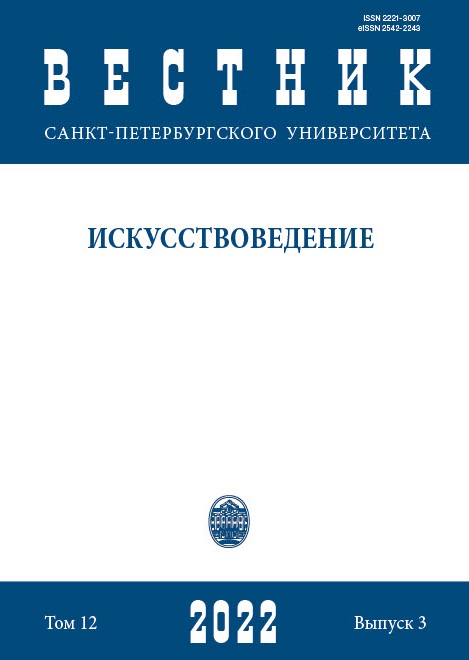Постминималистский музыкальный театр Дэвида Лэнга
DOI:
https://doi.org/10.21638/spbu15.2022.302Аннотация
Статья посвящена вопросам американского музыкального театра XXI в., плодотворно развивающегося на почве постминимализма. К числу ярких представителей этого стиля относится композитор Дэвид Лэнг (1957) — участник содружества «Стук по консервным банкам» («Bang on a Can»). Его театральные проекты двух последних десятилетий демонстрируют новую фазу развития постминималистского театра, фундамент которого был заложен старшими современниками — Филиппом Глассом, Стивом Райхом, Джоном Адамсом. На примере сценических произведений «Поле пересечь» («The Difficulty of Crossing a Field», 2002), «Узник государства» («Prisoner of the State», 2019) и «Анатомический театр» («Anatomy Theater», 2016) автор статьи выявляет основные черты музыкально-театрального стиля Лэнга и прослеживает тесную взаимосвязь с операми предшественников. С ними сближает обращение к постмодернистской драматургии (нелинейность повествования, фрагментарность, дискретность, нарушение причинно-следственных связей, комментарийность), социальной проблематике, стремление к жанровой уникальности каждого спектакля, репетитивные методы организации музыкальной ткани. В своем театральном творчестве Лэнг опирается на постминимализм и репетитивную технику, которая проявляет себя на разных уровнях — драматургическом, вербальном (повторность слогов, слов, фраз в либретто) и музыкальном. Характерная особенность лэнговских сценических опусов — синтез академических оперных традиций и неакадемических жанров и направлений (мюзикл, джаз, рэп), что позволяет провести аналогии с искусством кроссоверов. Мюзикл в ряде случаев выступает жанровой основой произведения (неакадемический вокал, танцевальное начало, обилие разговорных эпизодов — монологов и диалогов). Театр Лэнга — камерный, он предполагает небольшой состав участников, размещение на сцене вокалистов и оркестрантов, лаконичный хронометраж пьес. Все указанные факторы позволяют сделать предположение о формировании в музыкально-театральном творчестве Лэнга следующей фазы эволюции постминимализма, которую можно охарактеризовать как постпостминимализм.
Ключевые слова:
Дэвид Лэнг, Стук по консервным банкам, постминималистский музыкальный театр, Узник государства, Анатомический театр, Поле пересечь, репетитивная техника, американская опера XXI в.
Скачивания
Библиографические ссылки
Загрузки
Опубликован
Как цитировать
Выпуск
Раздел
Лицензия
Статьи журнала «Вестник Санкт-Петербургского университета. Искусствоведение» находятся в открытом доступе и распространяются в соответствии с условиями Лицензионного Договора с Санкт-Петербургским государственным университетом, который бесплатно предоставляет авторам неограниченное распространение и самостоятельное архивирование.






